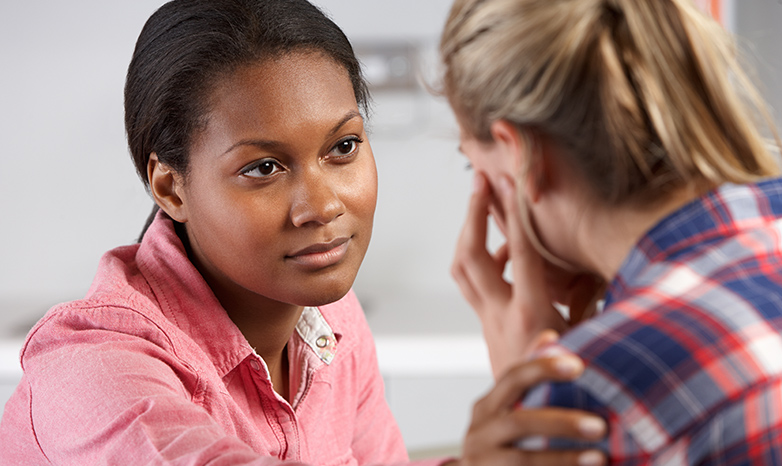SRU launches new mental health initiative

May 23, 2017
SLIPPERY ROCK, Pa. - Recognizing a rising trend in mental health problems, across the nation and among its students, Slippery Rock University is launching an initiative to connect students to more services that will improve their emotional, psychological and social well-being.
An increase in user fees, approved by SRU's Council of Trustees in March, will be dedicated to the University's Student Health Center beginning in the fall. The money will be used to increase students' mental health support and prevent potential crises.
The services will include the following:
-A campaign to promote mental health.
-The addition of one full-time professional and several student peer coaches/educators.
-Emotional wellbeing workshops.
-Expanding the development of the "Just in Case" mobile app that was implemented in 2016 to provide students with potentially lifesaving information.

BATEMAN
Mental health problems affect students' academic outcomes, including grades, course completion and retention, but according to Renee Bateman, SRU's health promotions coordinator, the initiative will benefit students in a variety of ways.
"Success is more than retention; it's helping students meet their goals and giving them the right tools to be successful," said Bateman, who is overseeing the mental health initiative on behalf of the SHC. "For some, it may be graduation or finding the right fit as far as their major. For others, it may be making new friends or getting connected to student organizations."
The new and expanded services will help SRU to better meet the growing needs for people affected by mental health issues. According to research released by the Psychiatric Services journal, about 3.4 percent of American adults suffered from some form of mental health problem that required medical treatment from 2006 to 2014.
College students are particularly susceptible to suffering adverse effects from stress, depression, anxiety and sleep disorders at significant, and growing, rates. From the 2014-15 to 2015-16 academic years, the SHC saw a 32 percent increase in visits from students for "psychological issues." According to a survey administered in 2016, 21 percent of SRU students reported being diagnosed for anxiety by a professional in the previous 12 months, which is 6 percent greater than the national average at U.S. postsecondary institutions, while 46 percent of SRU students rated their overall stress "more than average," a number that was also 6 percent greater than the national average.
Additionally, 60 percent of SRU students said they wanted to receive information about depression, anxiety and stress, while 62 percent wanted to receive information about how to help a friend in distress.
In the past, the SHC, which offers free services to students and refers them to health care professionals, has partnered with many campus organizations to offer programming and resources that address stress management, resiliency, coping strategies, mindfulness and other mental health issues. An example is a "Resiliency Boot Camp" offered to campus groups through the center's HOPE Peer Education program.
"We're going to try to take a public health approach in order to provide services to students through health education and outreach," Bateman said. "There will be an increase in workshops and opportunities for students to attend programming as well as an increase in marketing and messaging for students to better understand ways that they can manage their stress."
For more information about mental health services, contact the Student Health Center at 724.738.2052, or Bateman via email at renee.bateman@sru.edu.
MEDIA CONTACT: Justin Zackal | 724.738.4854 | justin.zackal@sru.edu

